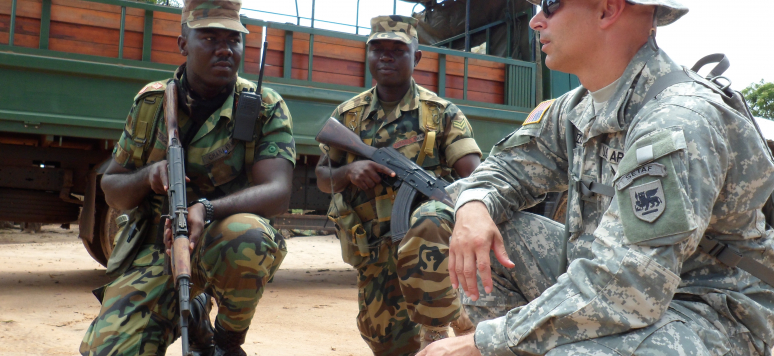Notes de l'Ifri - Robust Containment: French and US Security Policies in Africa Notes de l'Ifri, February 2016

Although the United States is less active in Africa than France, their security policies on the continent often have shared objectives and are sometimes pursued jointly. While the urgency of humanitarian crises has been at the centre of foreign interventions for a long time, now it tends to give way to the terrorist threat.
The emergence and expansion of terrorist groups with a complex character, which are sometimes rivals of each other and claiming to follow radical Islam, has increased significantly in recent decades and now dominates military operations by France and the United States in Africa.
Primarily, it is the internationalisation of terrorist activities which has led France to build its capacities in Africa and to assume the leadership role in the fight against terrorism on the continent. Despite attempts at Europeanisation, its security policy in Africa remains above all national; however co-operation with other military powers ready to commit is very positive, even if France is assuming a large part of the military effort made.
While French interests are long-standing and represent a significant part of the country's power and image on the international stage, the United States' strategic interest is however much more recent. Indeed, due to the absence of a direct security threat, the lack of geographical proximity, and military involvement in other international areas, Africa has never been uppermost among the United States' strategic priorities. The increasing instability, and more specifically the attack on the US consulate in Benghazi in September 2012, has necessarily resulted in greater involvement in African affairs by the Pentagon. Nevertheless, the Obama method consists first and foremost in supporting partners and making the United States' involvement as discreet as possible.
Paris positively welcomes the United States' support, even if their respective efforts are asymmetrical. In their strategy of robust containment, both powers aim to neutralise the leaders and members of terrorist movements by special forces in specific operations. However, experiences in Africa have demonstrated the limitations of this practice. Indeed, military operations may provide short-term results, but they cannot replace the search for long-term political solutions.
